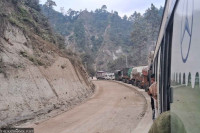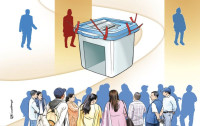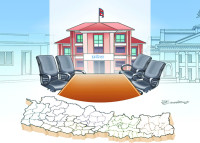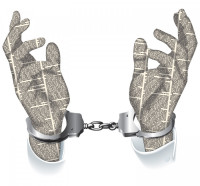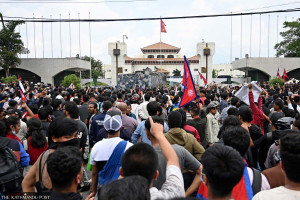Opinion
Exclusion in the mountains
Lately, there has been a lot of discussion on ‘Nepali’ citizenship. On the Madhes front, Prashant Jha and Dipendra Jha have long been engaged in these deliberations.
Tashi Tewa Dolpo
Case of the Madhes
Prashant Jha, in his new book, Battles of the New Republic, demonstrates the significance of citizenship. In the section, ‘Politics of Inclusive Nationalism’, the author notes that Madhesis were restricted from obtaining citizenship and discriminated against and often told to ‘go back to where you belong’. Subsequently, the shooting of Ramesh Mahato by the Maoists in Lahan, the release of Upendra Yadav, the Gaur killings and the pivotal role played by activist Tula Narayan Sah all contributed to the rise of the Madhes Movement. It was a movement for proportional representation and social justice, including the distribution of citizenship certificates to all Madhesis without discrimination.
Similarly, Dipendra Jha, in a recent article for the Post, ‘Two steps back’, also problematises the case of citizenship in contemporary Nepal. Jha argues that ‘Nepali’ citizenship has favoured only a few and excluded many, including Madhesis, starting from king Mahendra’s time. He argues for the implementation of past ‘agreed-upon-issues’ with Madhesi representatives and also asks for the formation of a permanent Citizenship Commission to minimise citizenship fraud cases. Jha also sees the citizenship issue as an opportunity for “the Madhesi Constituent Assembly club to rebuild a broad alliance to resist constitutional provisions on citizenship that seek to maintain the status quo.”
Up North
In both these accounts, the northern resistance and struggles against the pahadi satta and sarkar are not really touched upon, except in a general overview. In the larger debates of exclusion of citizenship, the Madhes has been greatly explored, although such exclusionary practices are also present in the north vis-à-vis citizenship.
There are discriminatory provisions even in the 1962 Constitution, the Citizenship Act 1964 and the renewed Citizenship Act of 2006. The constraining clauses in the first two, for instance, ‘Nepali origin’ and ‘ability to speak and write Nepali’ also portray Dolpos as ‘Bhotes’, or people of the ‘Tibetan origin’. In general, their inability to speak and write in Nepali and their facial structure also contributes to officials tagging them as ‘non-Nepalis’. Furthermore, according to an article by Abrahams and Varughese, ‘Stateless in New Nepal: Inclusion without Citizenship is Impossible’, “the current Interim Constitution of Nepal (2007), the Citizenship Act of 2006, and a 2011 Supreme Court directive all provide for citizenship if a child is born to a Nepali mother or a Nepali father” might increase the number of stateless children. These provisions neglect the geographical and linguistic concerns of parents at the time of registration.
In Dolpo
During a two-month visit to five VDCs in the Upper Dolpa region in 2012, several locals told me that district officials always misinterpreted and wrongly wrote their parents’ names in the temporary district archive book and on birth certificates, especially in the case of people born before and after 2045 BS (1988). This made it very difficult for them to acquire citizenship cards. In addition, it takes at least two to five days to reach district headquarters, depending on the village. Locals were and are still required to bring four witnesses with them to prove that he/she is a ‘Nepali’, provided that they have a recommendation letter from the VDC Secretary. They also need to know how to speak and write in proper Nepali to obtain their citizenship card within two to three days. Worse still, they are still made to pose in-front of cameras and are harassed and abused with ethnic slurs, such as ‘Bhote’. This has become an everyday routine for the locals of Upper Dolpa.
With regards to the recent death in Dolpo (‘Death in Dolpo’, June 18, Page 6), one of the twelve locals who were imprisoned said that he was ready to collect all citizenship cards and burn them in-front of the district officials. Locals were also reminded time and again by the ‘dutiful’ police, “This is not your country, this is Nepal” and even told, “Bhote haru lai ek ek gari mar dinchu” (Will kill those Bhotes one by one). Though the term ‘Bhote’ has its roots in the socio-cultural and geographical terrain, the effects and ill treatment exercised by the concerned authorities does not justify the term’s distinct origin. This abuse has also now been normalised among villagers.
Therefore, in this multicultural and diverse context, where one also needs to accommodate different indigenous, religious and linguistic groups as well as economic classes, the questions of citizenship also need to be reconsidered. Besides Dipendra Jha’s proposition in the new constitution, Iris Marion Young’s ‘differentiated citizenship’ might also save excluded citizens from further exploitation. This kind of citizenship would adopt different groups into a common citizenship by accommodating them not only as individuals but also through their group membership. The proper orientation regarding the distinct socio-cultural, economical, political and linguistic aspects of the community to the security forces might prevent other deaths. This approach might also save the long practiced collective knowledge of several distinct communities in negligent Nepal.
Tewa Dolpo is currently working as a Research Assistant at the Nepa School of Social Sciences




 16.57°C Kathmandu
16.57°C Kathmandu
